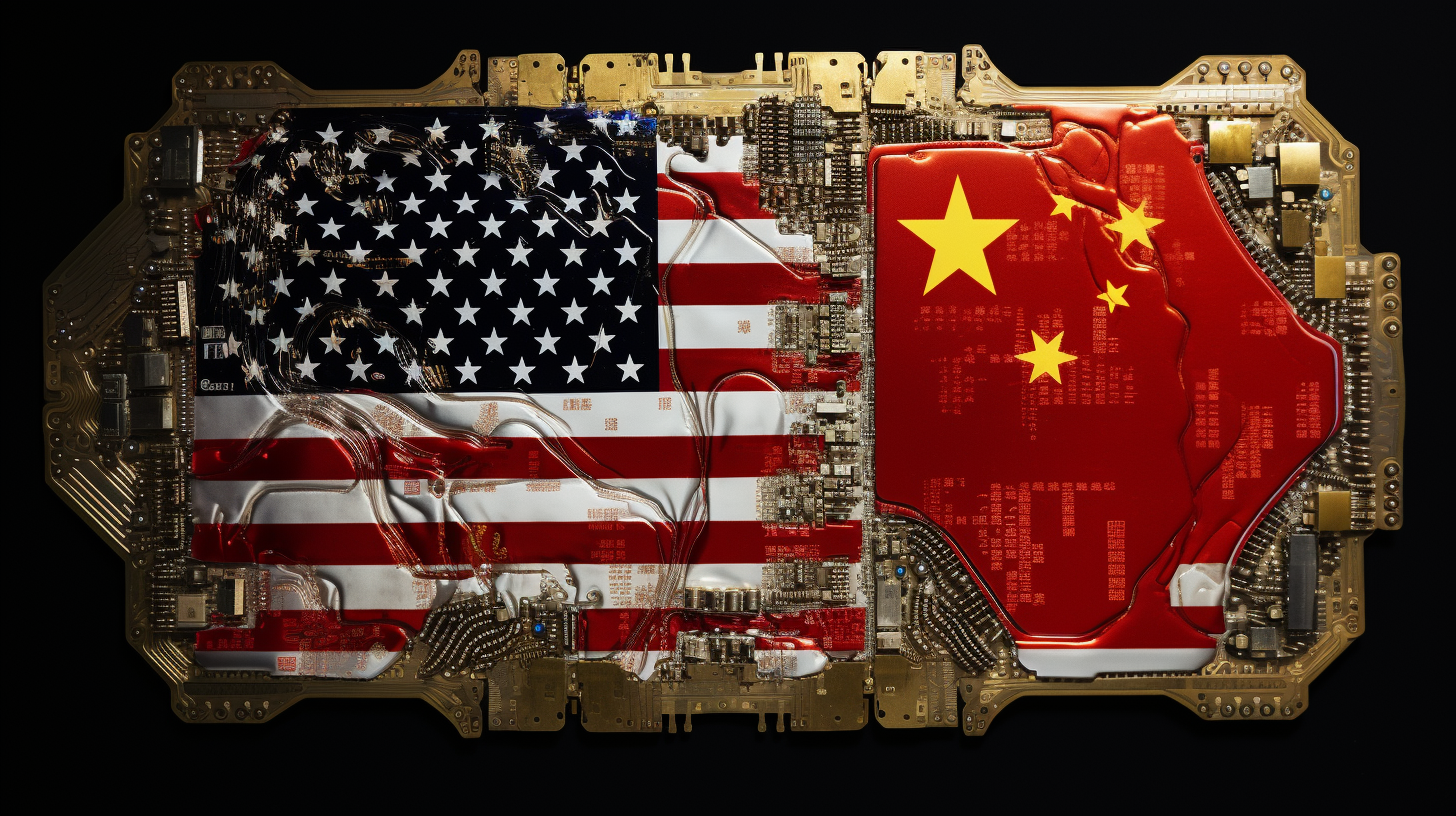Shares of Nvidia and other semiconductor firms tumbled Tuesday morning after the U.S. announced stringent new curbs on exports of artificial intelligence chips to China. The restrictions spooked investors already on edge about the economic fallout from deteriorating U.S.-China relations.
Advanced AI chips like Nvidia’s flagship A100 and H100 models are now barred from shipment to China, even in downgraded versions permitted under prior rules. Nvidia stock plunged nearly 7% on the news, while chip stocks like Marvell, AMD and Intel sank 3-4%. The Philadelphia Semiconductor Index lost over 5%.
The export crackdown aims to hamper China’s progress in developing cutting-edge AI, which relies on massive computing power from state-of-the-art chips. U.S. officials warned China could use next-generation AI to threaten national security.
“We have specific concern with respect to how China could use semiconductor technologies to further its military modernization efforts,” said Alan Estevez, an under secretary at the Commerce Department.
But hampering China’s AI industry could substantially dent revenues for Nvidia, the dominant player in advanced AI chips. China is estimated to account for billions in annual sales.
While Nvidia said the financial impact is not immediate, it warned of reduced revenues over the long-term from tighter China controls. Investors are concerned these export curbs could be just the beginning if tensions continue to escalate between the global superpowers.
The escalating trade barriers also threaten to disrupt global semiconductor supply chains. Many chips contain components sourced from the U.S., Japan, Taiwan and other countries before final manufacturing and assembly occurs in China. The complex web of cross-border production could quickly seize up if trade restrictions proliferate.
Nvidia and its peers sank Tuesday amid fears of being caught in the crossfire of a technology cold war between the U.S. and China. Investors dumped chip stocks on worries that shrinking access to the massive Chinese market will severely depress earnings.
AI chips are essential to powering everything from data centers, autonomous vehicles, and smart devices to facial recognition, language processing, and machine learning. As AI spreads across the economy, demand for specialized semiconductors is surging.
But rivalries between the U.S. and China now threaten to put a ceiling on that growth. Both nations are aggressively competing to dominate AI research and set the global standards for integrating these transformative technologies. Access to the most powerful AI chips is crucial to these efforts.
By curbing China’s chip supply, the U.S. administration aims to safeguard America’s edge in AI development. But tech companies may pay the price through lost revenues if China restricts access to its own market in retaliation.
For the broader stock market already on edge about resurgent inflation, wars in Ukraine and the Middle East, and rising interest rates, the intensifying technology cold war represents yet another worrying threat to global economic growth. While a severe downturn may ultimately be avoided, the rising risk level underscores why investors are growing more anxious.
